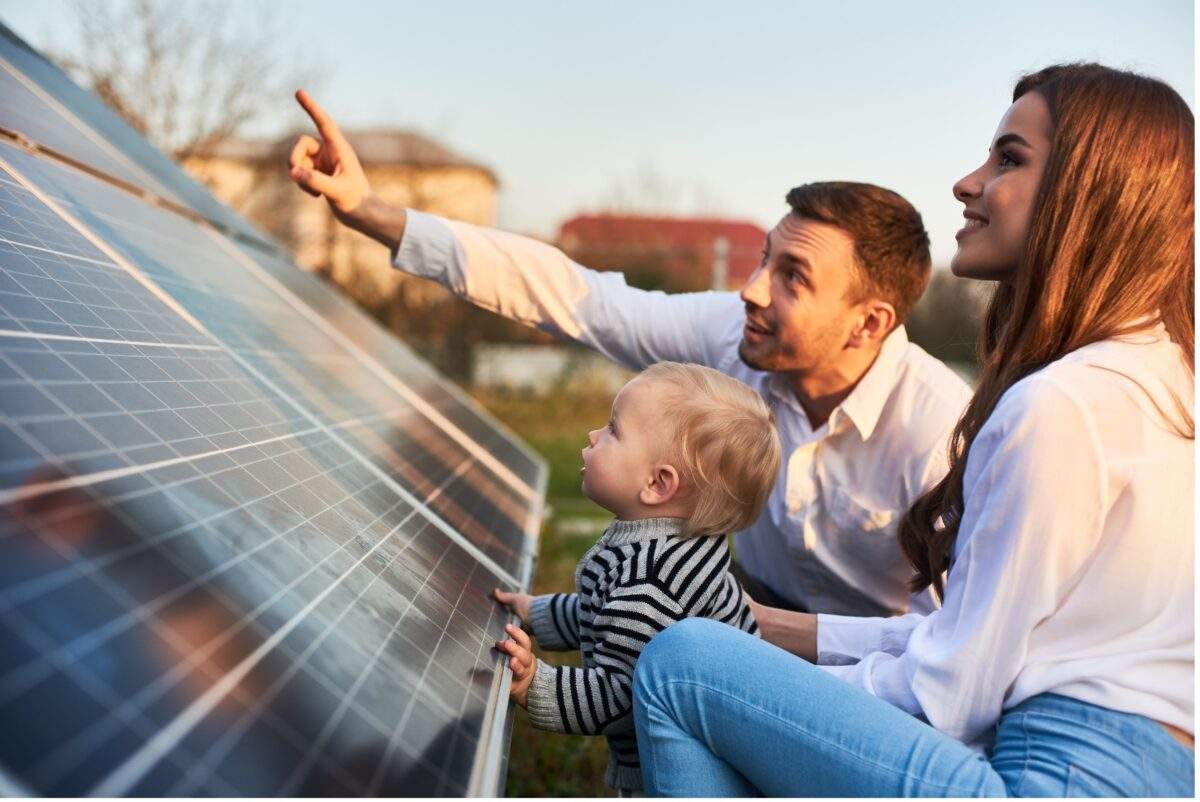
Explore our Solar Energy Glossary
Expert definitions and breakdowns of key solar terms
The Earth’s natural resources are becoming less abundant each and every day, meaning solar energy is becoming more important to our future than ever before!
Learn about and explore these commonly used terms and definitions that frequent the solar and electrical industries.
Alternative energy is any form of energy that doesn’t consume natural resources or come from a source that would harm the environment.
The electrical grid, also known as the power grid, is a complex system that has been around for over 100 years, and it provides the electricity needed to power everything from industrial machines to household appliances.
A gigawatt is one billion watts. To generate this much power would require over three million PV modules on over three acres of land.
Greenhouse gases (GHGs) play a crucial role in the Earth’s atmosphere, trapping heat and contributing to the greenhouse effect. Understanding their impact on the environment is essential for addressing the challenges posed by climate change
Kilowatt-hours (kWh) measure the total amount of energy that an appliance uses in kilowatts over the course of one hour.
Simply put, Net Metering is a billing system that allows you to bank credits with the power grid when your solar system over-produces and then use those credits when you under-produce.
When sunlight hits the solar panels, they interact with photovoltaic cells, or PV cells for short. These cells are often incredibly thin and usually produce about a watt or two of power each.
Renewable energy comes from sources that are continuously replenished, or permanently accessible. Solar power was the first renewable energy source to be discovered in 1839.
A solar array begins with solar cells, also known as photovoltaic cells, which are grouped together in order to create solar panels.
Solar battery storage is a battery device that is attached to an existing solar energy system and holds residual energy.
Solar energy is a form of energy that is obtained directly from sunlight. It is harnessed by using solar panels.
When the sunlight hits your solar panels, the PV cells create an electrical current that runs straight to your solar power inverter. Here, the DC power generated is converted into AC power.
A Solar Purchase Power Agreement (PPA) is a financial arrangement between a party looking to purchase solar power for their property, and a party providing the equipment necessary to produce solar energy.
Time of Day, or Time of Use as it’s also known, is a type of energy rate plan that utilities can implement that allows for lower energy costs during low-demand time periods and higher energy costs during high-demand time periods to encourage homeowners to save by changing when they use their electricity.
